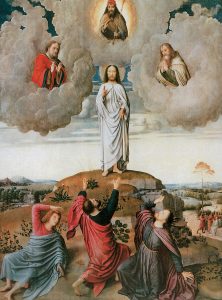
Ash Wednesday will be celebrated in a traditional Latin Mass at St. Stanislaus Church, New Haven on Wednesday, March 2, at 5:30 pm. The celebrant will be The Reverend Jan Pikulski. Ashes will be blessed and imposed immediately before the Mass begins.
One of the most important liturgical days of the year, Ash Wednesday opens the season of Lent, which extends for forty days through Holy Saturday (the Sundays during Lent are not included). These forty days remember the fast of our Lord in desert before his passion and death on the cross.
In the Old Law, ashes were generally a symbolic expression of grief, mourning, or repentance. In the Early Church, the use of ashes had a like signification and with sackcloth formed a part of liturgical rites of the year. It was originally instituted for public penitents, but is now intended for all Christians, as Lent should be a time of penance for all. The ashes used this day are obtained by burning palms of the previous year. Traditionally, they a re blessed by four ancient prayers, sprinkled with holy water and incensed, and then placed in the form of a cross on the foreheads of each of the faithful with the words, “Remember, man, that thou art dust, and unto dust thou shalt return.” The ancient prayers of the blessing suggest suitable thoughts for the opening of Lent. They are summarized here:
“Almighty and everlasting God, spare the penitent … bless these ashes, that they maty be a remedy to all who invoke Thy Name … O God, who desirest not the death but the conversion of sinners, look in kindness upon our human frailty … and bless those ashes, so that we, who know ourselves to be but ashes … and that we must return to dust, may deserve to obtain pardon and the rewards offered to the penitent.”




